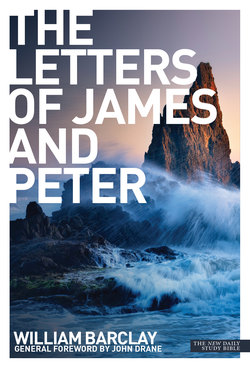Читать книгу New Daily Study Bible: The Letters to James and Peter - William Barclay - Страница 28
На сайте Литреса книга снята с продажи.
ОглавлениеTRUE WORSHIP
James 1:26–7
If anyone thinks that he is a worshipper of God and yet does not bridle his tongue, his worship is an empty thing. This is pure and undefiled worship, as God the Father sees it, to visit the orphans and the widows, and to keep oneself unspotted from the world.
WE must be careful to understand what James is saying here. The Revised Standard Version translates the phrases at the beginning of verse 27: ‘Religion that is pure and undefiled is . . .’ The word translated as religion is thrēskeia, and its meaning is not so much religion as worship in the sense of the outward expression of religion in ritual and liturgy and ceremony. What James is saying is: ‘The finest ritual and the finest liturgy you can offer to God is service of the poor and personal purity’ To James, real worship did not lie in elaborate vestments or in magnificent music or in a carefully planned service; it lay in the practical service of others and in the purity of one’s own personal life. It is perfectly possible for a church to be so taken up with the beauty of its buildings and the splendour of its liturgy that it has neither the time nor the money for practical Christian service – and that is what James is condemning.
In fact, James is condemning only what the prophets had condemned long ago. God, said the psalmist, is ‘father of orphans and protector of widows’ (Psalm 68:5). It was Zechariah’s complaint that the people pulled away their shoulders and made their hearts as unyielding as stone at the demand to render true justice, to show mercy and compassion to one another, not to oppress the widow, the fatherless, the stranger and the poor, and not to entertain evil thoughts against another within the heart (cf. Zechariah 7:6–10). It was Micah’s complaint that all ritual sacrifices were useless if the people did not do justice and love kindness and walk humbly before God (cf. Micah 6:6–8).
All through history, people have tried to make ritual and liturgy a substitute for sacrifice and service. They have made religion splendid within the church at the expense of neglecting it outside the church. This is by no means to say that it is wrong to seek to offer the noblest and the most splendid worship within God’s house, but it is to say that all such worship is empty and idle unless it sends people out to love God by loving one another and to walk more purely in the tempting ways of the world.
